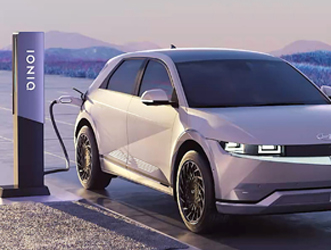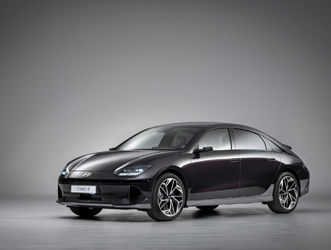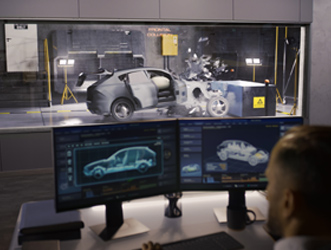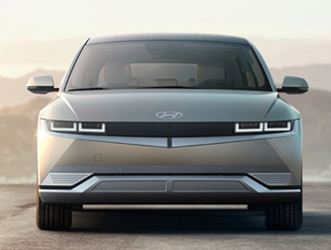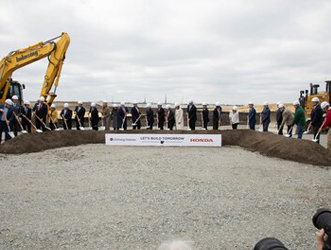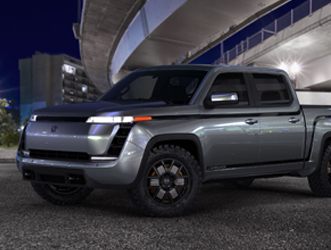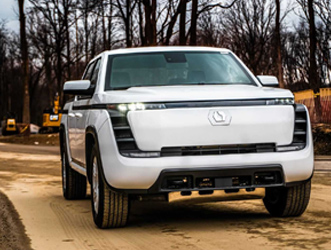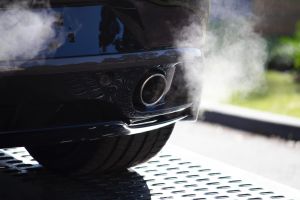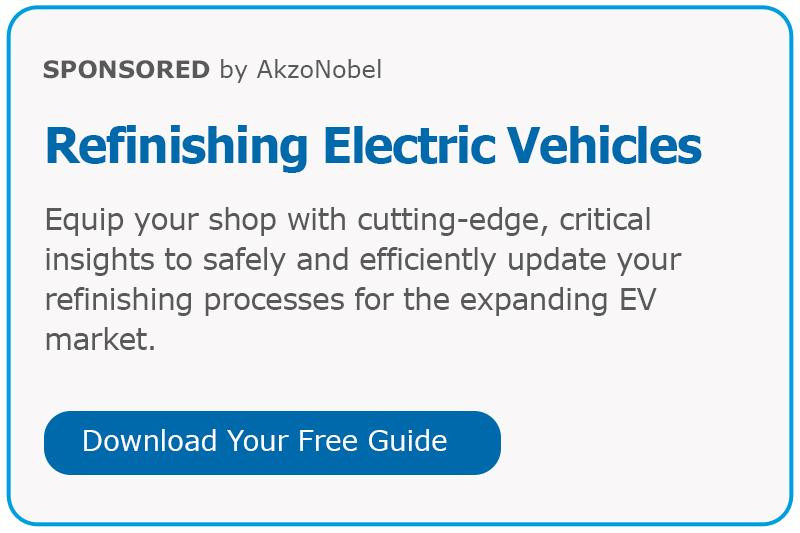Kelley Blue Book Unveils Winners of 2023 Best Buy Awards
Published Dec. 15, 2022
After thorough head-to-head testing, in-depth data analysis and evaluation of the more than 300 new-vehicle models available in the U.S. market for 2023, Kelley Blue Book, a Cox Automotive company, on Dec. 15 announced the winners of its annual Best Buy Awards.
Now in its ninth year, the company's comprehensive awards program highlights the top model in vehicle segments most relevant to new-car shoppers, with award categories evolving over the years to align with the changing automotive landscape.
The 2023 Kelley Blue Book Best Buy Awards encompass 19 categories covering the entire spectrum of automotive needs, with additional categories introduced this year to reflect the ever-growing electrified-vehicle segments.
This year's highest honor of Best New Model goes to the 2023 HyundaiIONIQ 5.
"The number of electric vehicles available to new-car shoppers continues to increase at a staggering pace, and the competition continues to get hotter as these efficient rides gain popularity among consumers," said Jason Allan, principal editor of reviews and ratings for Kelley Blue Book. "Our team was so impressed with the all-new Hyundai IONIQ 5 during this year's Best Buy Awards testing that we didn't just give it the title of Best Electric Vehicle for 2023, it also earned our Best New Model trophy.
"It is truly a vehicle that exemplifies how easy it can be now to go all-electric, boasting the kind of impressive range and tech features that consumers have come to expect, and offering terrific value relative to the competition," Allan said. "In addition to the Best New Model, our team also named the top 2023 model-year vehicles in the categories most relevant to today's car shoppers."
This year, Kelley Blue Book partnered with NASCAR driver Toni Breidinger so she could use her professional racecar driver skills to put the top winner to the test out on the "track" of real-world driving. Breidinger joined Kelley Blue Book's editors for a day of test driving the Hyundai IONIQ 5, sharing her thoughts and driving impressions as she evaluated the all-new model through the lens of a racecar driver.
"As a lifelong automotive enthusiast, it was a thrill to join the experts from Kelley Blue Book for a day to put the 2023 Hyundai IONIQ 5 to the test," said Breidinger. "The spacious interior and extended dashboard really stood out to me. Most importantly, I appreciated the all-electric range. After a test day with the IONIQ 5, I can confirm this year's Best New Model is racer-approved."
Kelley Blue Book's annual Best Buy Awards are determined based on a year-long regimen of expert vehicle evaluation, plus an intensive period of final testing. The reviews, ratings and awards are driven by analysis of a broad array of vehicle-related data, including vehicle pricing, 5-Year Cost to Own data---which includes depreciation, insurance, maintenance, financing, fuel, fees and taxes for new cars---along with consumer reviews and ratings and vehicle sales information.
To be considered for Kelley Blue Book's highest accolade, Best New Model, the vehicle must be an all-new or redesigned vehicle---unavailable before the prior year's final Best Buy Awards testing---and offer a strong value proposition to consumers based on pricing, innovation and available standard technology and safety features.
2023 Kelley Blue Book Best Buy Award Winners
Best Electric Vehicle and Best New Model: 2023 Hyundai IONIQ 5
With more than 300 miles of range, a spacious, tech-filled interior and an impressive starting price, the Hyundai IONIQ 5 shows how easy it can be for someone to go all electric. You can even go from 10% charge to 80% in as little as 18 minutes.
Best Compact Car: 2023 Honda Civic
There's a reason the 2023 HondaCivic tops the Best Compact Car list, a feat it has now accomplished eight of the last nine years: It just does everything right. The Civic sedan is a joy to drive. It's a worry-free mode of transport that won't break the budget, and the Civic holds its value exceptionally well.
Best Subcompact SUV: 2023 Kia Seltos
When shopping for a subcompact SUV, every dollar counts. That's why the Kia Seltos is the Best Subcompact SUV winner again for 2023. Its low starting price, long list of standard tech and safety features, impressive fuel economy and fantastic warranty make the Seltos a terrific value. This stylish SUV also boasts one of the roomiest interiors in its class.
Best Compact SUV: 2023 Honda CR-V
The Honda CR-V has been among the easiest vehicles to recommend for many, many years. In fact, it has been named a Kelley Blue Book Best Buy more times than any other compact SUV. Fresh off a complete redesign and now bigger and better than ever, the CR-V has reclaimed its place as the compact SUV deemed to be the best choice for the most people.
Best 2-Row Midsize SUV: 2023 Hyundai Santa Fe
Kelley Blue Book recognizes not only the immense value of this five-passenger SUV but also its wide appeal. Hyundai hangs its collective hat on its value story, and nowhere is that value more apparent than in the level and quality of its technology. To find an SUV at this price point with this degree of attention to detail inside and out is a tribute to Hyundai's genius for making every dollar count.
Best 3-Row Midsize SUV: 2023 Kia Telluride
For 2023, the Telluride wins this category for the fourth time, winning every year since it went on sale. The Telluride is great-looking and roomy with an upscale interior. It's practical with a stacked roster of standard safety and convenience equipment. The Telluride is an excellent value in the midsize SUV segment.
Best Full-Size SUV: 2023 Ford Expedition
The 2023 FordExpedition is a comfortable, refined eight-passenger full-size SUV that is ready for work and travel. It can tow up to 9,300 pounds, while features like Pro Trailer Backup Assist 2.0 and a blind-spot system that also accounts for the trailer make towing easier.
Best Compact Pickup Truck: 2023 Ford Maverick
The Ford Maverick heralds the return of the compact pickup, providing light-duty versatility in a truck as easy on gas as it is on the eyes. With nearly 500 miles of range, the hybrid Maverick bests even the most frugal subcompact, yet it's capable of hauling a 1,500-pound payload and towing up to 2,000 pounds---or 4,000 pounds with the all-gas powertrain.
Best Midsize Pickup Truck: 2023 Toyota Tacoma
Where midsize pickup trucks are concerned, the 2023 ToyotaTacoma cannot be beaten. No matter the metric, the Tacoma tops its class. This begins in the showroom where you will find exactly the cab style, trim level, cargo-box length, engine and drivetrain to suit anyone's needs. Thanks to the Tacoma's Toyota-tough reliability, owners won't be on a first-name basis with the local dealership's service writer. Moreover, when owners are finally ready to trade in or sell their Tacoma, they'll appreciate its uncanny ability to retain its value over the years.
Best Full-Size Pickup Truck: 2023 Ford F-150
Whether it's a basic work truck, an opulent people mover or something in between, Ford offers an F-150 to do the job. On a mission to put its own stamp on future mobility, Ford loads up the 2023 Ford F-150 with technology, while electrifying the lineup with a hybrid and fully electric model. The F-150 excels when towing and hauling, and Ford continues to exceed buyers' expectations.
Best Electric Truck: 2023 Ford F-150 Lightning
The Ford F-150 Lightning, the all-electric version of the perennially best-selling Ford F-Series, is a great buy for its reasonable pricing, impressive range and advanced tech features. As for its capabilities, the F-150 Lightning has some impressive specs for an EV. It can tow up to 10,000 pounds and it has a maximum payload rating of 2,000 pounds.
Best Minivan: 2023 Toyota Sienna
The Toyota Sienna is the Best Buy in the Minivan segment for the third consecutive year. Its "threepeat" is well deserved for offering just about everything one could want in a family hauler. The Sienna's interior is an excellent execution of the "living room on wheels" characteristic that families love, and the hybrid powertrain gives it low fuel costs. The Sienna also is an outstanding value when it comes to what minivan drivers really value---safety and reliability.
Best EV Under $35,000: 2023 Chevrolet Bolt EUV
As a slightly longer version of the Bolt EV, the Bolt EUV (Electric Utility Vehicle) impressed the KBB.com editors with its roomy back seat and excellent build quality, along with its great price and impressive 247-mile range. With EVs in general, but especially those on the affordable end of the spectrum, car shoppers tend to measure their value in a simple fashion---by how far they can go on a full charge and at what price. It is a fair, real-world approach. By this measurement, the 2023 Chevrolet Bolt EUV shines brightly.
Best Plug-in Hybrid Vehicle: 2023 Kia Sportage Plug-in Hybrid
The best of both worlds, the Kia Sportage Plug-in Hybrid is both the most powerful and the most fuel-efficient model in the all-new Sportage lineup. With 34 miles of all-electric range followed by hybrid fuel economy of 35 mpg, you can enjoy driving in comfort while only occasionally having to stop for gas.
Best Luxury Car: 2023 Lexus ES
The Lexus ES checks all the boxes for a luxury vehicle---and then some---yet does so in an unpretentious way. On the road its manners are without fault, yet the success story of the ES goes far beyond it being a rewarding car to drive. Its narrative includes plot lines not usually associated with luxury cars, including a stellar value proposition and rock-solid reliability.
Best Subcompact Luxury SUV: 2023 BMW X1
All-new for 2023 with bolder looks, better technology and a grown-up persona, the BMWX1 also is now a first-time member of the Kelley Blue Book Best Buy Award club. The BMW X1 has long been a gateway into the German luxury brand, representing BMW's smallest SUV and one of its best values. Now is the X1's time to shine.
Best Compact Luxury SUV: 2023 Genesis GV70
It is no mystery why the GenesisGV70 continues to win accolades. Its enticing good looks and feature-rich equipment offerings are alluring, but the GV70's value story turns just as many heads.
Best Midsize Luxury SUV: 2023 Genesis GV80
The Genesis GV80 is the brand's first SUV and a relative newcomer to the midsize luxury SUV segment, yet it already has established itself as a leader in this competitive class. It has a roomy, luxurious interior with available 3-row seating, an engaging drive with two engine options, excellent safety ratings and a class-leading warranty.
For more information and full coverage of the 2023 Kelley Blue Book Best Buy Awards, visit www.kbb.com/awards/best-buy-awards-2023/.
Source: Kelley Blue Book









